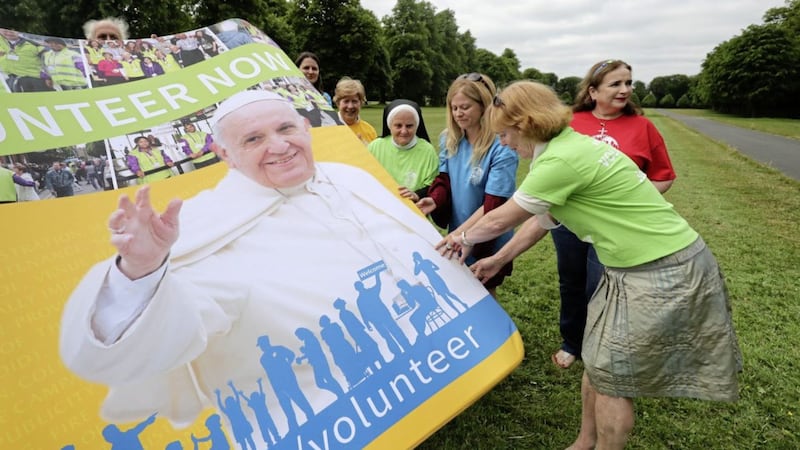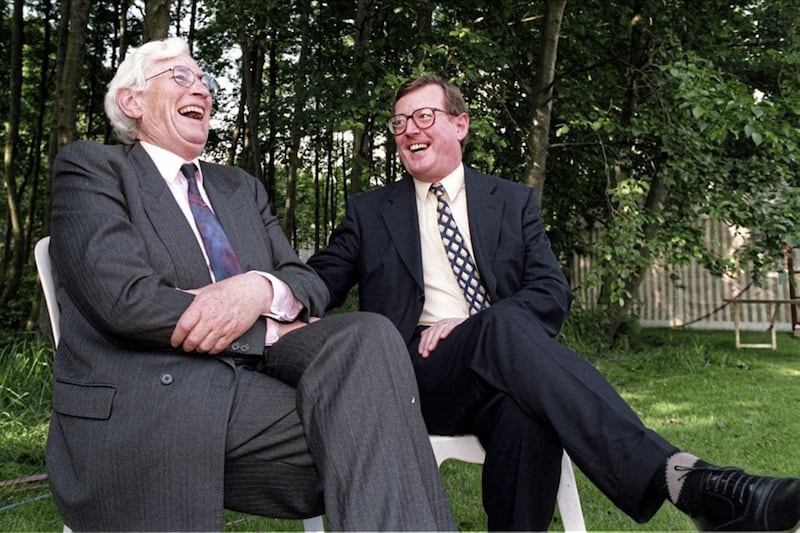BETWEEN now and his visit to Ireland for the World Meeting of Families in just two months, expect to read lots about how Pope Francis is coming to a very different country than that which embraced John Paul II in 1979.
Of course he is. The same would be true if you were comparing, say, President John F Kennedy's visit to Ireland in 1963 and the prospect - thankfully imagined, at least for now… - of Donald Trump arriving in 2018. Or examining how Bruce Springsteen's Irish shows have changed in the years since he first played Slane Castle in 1985.
Time passes, and things change. Or tempora mutantur, nos et mutamur in illis, as is regularly heard to pass from Trump's lips.
Where Pope Francis is concerned, the 'Ireland has changed' narrative is also a convenient shorthand that allows commentators to highlight the dramatic decline in the Catholic Church's fortunes.
More than half of the state's population is estimated to have seen John Paul II. Expectations for Francis are rather more modest.
That the Pope arrives so soon after the referendum which overwhelmingly backed the repeal of the Eighth Amendment, and thus rejected the Church's position on abortion, merely emphasises the impression that Catholicism isn't just out of step with modern Ireland, but rocked back on both heels.
It's a persuasive analysis. The Catholic Church that embedded itself in the state, which dominated the prevailing culture for decade upon decade, which abused its power in all sorts of egregious ways, needed to be taken down a peg or two. More than that, it needed to be humiliated.
The Catholic Church will have to continue to answer for the excesses committed in its name, from clerical abuse and rank hypocrisy to mother and baby homes, cover ups and a litany of other sins of commission and omission.
It would be astonishing if Pope Francis doesn't address Irish Catholicism's recent past during his visit.
Another way of approaching the story of Irish Catholicism in 2018 is that its declines - in respect, status, attendance, influence - also signal that it is adjusting to the minority, counter-cultural role that is an authentic Christian calling.
The programme for the World Meeting of Families does seek to address pressing real-world concerns. Perhaps that's another way of saying that it is taking its own laity, and their appetite to engage with society and advocate for faith, seriously
Being at the centre of temporal influence and power, as it was for so long, is not where the Church should have been. That was a freak, a product of unique circumstances that included the end of the Penal Laws and the birth of a new 'Catholic' state.
Rather, the Church should be on the fringes, with the vulnerable and weak; a field hospital for the faithful, to borrow a phrase of Francis's; a place where the clergy know the smell of the sheep, to take another.
It could also be said that the world doesn't take the Church seriously because the Church doesn't take the world seriously.
This is sometimes shown in the way they can get themselves in a muddle presenting their doctrine, as the Presbyterian Church found this month.
The programme for the World Meeting of Families does seek to address pressing real-world concerns. Perhaps that's another way of saying that it is taking its own laity, and their appetite to engage with society and advocate for faith, seriously.
Themes include exploring the impact of technology on the family, homelessness, addiction, the relationship between sport and the family and the role of fathers.
Jesuit priest James Martin will talk about "how parishes can support those families with members who identify as LGBTI+"; Fr Martin has drawn criticism for arguing that the Catholic Church has treated LGBT as second-class citizens.
These are the same sorts of themes that will shape October's Synod of Bishops in Rome, which is focused on 'Young People, the Faith and Vocational Discernment'.
Its working document was published this week, with input from thousands of young people from around the world who last year completed an online questionnaire about their lives, attitudes and concerns.
It appears to include the first use of the acronym 'LGBT' in a Vatican document, and highlights young people's concerns with issues such as fake news and digital dependence.
It also notes that there are Catholics who wish to remain part of the Church but who also disagree with its teaching on issues like contraception, same-sex marriage and abortion.
That the Catholic Church is even discussing these live issues is, in itself, progress.
Yes, Pope Francis does come to a different Ireland than that visited by his predecessor. But is the Church itself also showing signs of change?









